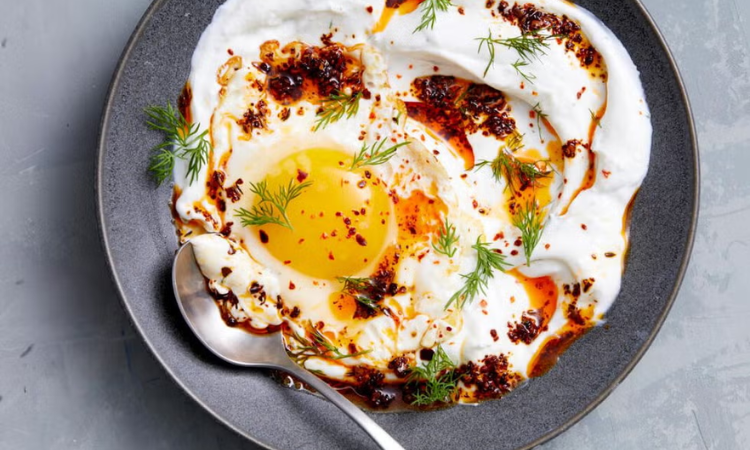A 2,000-calorie meal plan is ideal for many adults aiming to maintain a healthy weight while getting essential nutrients. This calorie level supports energy needs for moderately active individuals, providing vitamins, minerals, fiber, and protein without excess calories. This guide explains how to create a personalized 2,000-calorie meal plan with practical steps, a sample menu, and tips for success.
Step 1: Confirm Your Calorie Needs
Calorie needs vary based on age, gender, height, weight, and activity level. A 2,000-calorie diet often suits moderately active adults, such as a 30-year-old woman who exercises 3–5 times a week or a less active man. Use an online calorie calculator or consult a healthcare provider to confirm this target fits your goals.
Why it matters: Matching your calorie intake to your needs prevents weight gain or loss while ensuring you have energy for daily activities.
Real-life example: Lisa, an office worker, used a calorie calculator to confirm 2,000 calories was right for her active lifestyle. This helped her plan meals that kept her energized without overeating.
Step 2: Focus on Nutrient-Dense Foods
Choose whole, nutrient-dense foods to maximize nutrition within your 2,000-calorie budget. These foods deliver vitamins, minerals, fiber, and healthy fats while keeping you full. Prioritize:
- Fruits: Berries, apples, or oranges for vitamins and fiber.
- Vegetables: Leafy greens, broccoli, or carrots for low-calorie volume.
- Whole grains: Brown rice, quinoa, or whole-grain bread for sustained energy.
- Lean proteins: Chicken, fish, tofu, or beans for muscle support.
- Low-fat dairy or alternatives: Greek yogurt or fortified almond milk for calcium.
- Healthy fats: Nuts, seeds, avocado, or olive oil in moderation.
Limit processed foods, sugary drinks, and high-fat snacks, which offer empty calories. For example, swap chips for baby carrots with hummus to save calories and boost nutrition.
Why it matters: Nutrient-dense foods nourish your body, reduce cravings, and support long-term health.
Step 3: Include All Food Groups
A balanced meal plan includes fruits, vegetables, grains, proteins, and dairy or alternatives. Aim for:
- 2–4 servings of fruit (e.g., 1 medium fruit = 1 serving).
- 3–5 servings of vegetables (e.g., 1 cup raw or ½ cup cooked = 1 serving).
- 2–3 servings of dairy (e.g., 1 cup milk or yogurt = 1 serving).
- 5–7 servings of grains and proteins (e.g., ½ cup cooked grains or 3 oz protein = 1 serving).
Variety ensures you get a wide range of nutrients, like vitamin C from oranges or iron from spinach.
Real-life example: Tom, a teacher, added a variety of colorful veggies to his lunches, like bell peppers and zucchini, to meet his nutrient needs and keep meals interesting.
Step 4: Plan Balanced Meals and Snacks
Structure meals with 2–3 food groups for balance. Use the plate method: half your plate vegetables, one-quarter lean protein, and one-quarter whole grains. Add fruits, dairy, or healthy fats as needed. Include two snacks to prevent hunger and overeating.
For example:
- Breakfast: Greek yogurt with fruit and nuts (dairy, fruit, healthy fats).
- Lunch: Turkey sandwich with veggies and a side of soup (protein, grains, vegetables).
- Dinner: Grilled fish with quinoa and steamed greens (protein, grains, vegetables).
Why it matters: Balanced meals stabilize blood sugar and provide consistent energy, making it easier to stick to your plan.
Sample 2,000-Calorie Meal Plan
Here’s a one-day meal plan totaling ~2,000 calories with balanced nutrition:
Breakfast (500 calories)
- 1 cup low-fat Greek yogurt with ½ cup blueberries and 2 Tbsp chopped walnuts
- 1 slice whole-grain toast with 1 Tbsp peanut butter
- 1 cup skim milk
Morning Snack (200 calories)
- 1 medium apple
- 1 oz low-fat cheddar cheese
- 5 whole-grain crackers
Lunch (500 calories)
- Tuna salad sandwich (3 oz tuna, 1 Tbsp light mayo, lettuce, tomato, mustard on 2 slices whole-grain bread)
- 1 cup low-sodium vegetable soup
- 12 baby carrots with 2 Tbsp hummus
Afternoon Snack (200 calories)
- 1 medium banana
- 1 part-skim mozzarella cheese stick
Dinner (600 calories)
- 4 oz grilled salmon
- 1 cup cooked brown rice
- 1 cup steamed broccoli with 1 tsp olive oil
- Side salad (2 cups mixed greens, ¼ cup chickpeas, ¼ cup cherry tomatoes, 1 Tbsp balsamic vinaigrette)
Note: Calorie counts are approximate. Adjust portions based on specific brands or preferences.
Step 5: Tips for Long-Term Success
To make your 2,000-calorie meal plan sustainable, try these strategies:
- Stay hydrated: Drink 8–10 cups of water daily to support digestion and fullness.
- Control portions: Use measuring cups or a food scale for accuracy, especially for calorie-dense foods like nuts.
- Cook at home: Prepare meals to control ingredients and avoid hidden calories.
- Meal prep: Batch-cook grains or proteins on weekends for quick meals.
- Allow treats: Enjoy a small dessert weekly to avoid feeling deprived.
- Add variety: Rotate foods like quinoa or lentils to prevent boredom.
- Exercise regularly: Pair your diet with physical activity to support weight maintenance.
Real-life example: Maria, a busy mom, prepped salads and grilled chicken on Sundays. This saved time and helped her stick to her 2,000-calorie plan during hectic weeks.
Why a 2,000-Calorie Meal Plan Works
This meal plan balances macronutrients (carbs, protein, fat) and micronutrients to support energy, immunity, and overall health. It’s flexible, allowing swaps like tofu for salmon or quinoa for rice to suit preferences or dietary needs. By focusing on whole foods and portion control, you avoid restrictive dieting, making it easier to maintain long-term.
Why it matters: A balanced 2,000-calorie plan isn’t just about calories—it’s about feeling energized, satisfied, and confident in your food choices.




